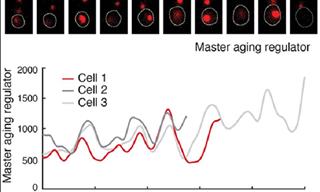The overly-processed bacon you bought might not be good for your health - more than you probably realize. Wouldn’t it be great if you knew exactly how harmful your bacon or sausage is? A new smartphone app can examine your meat products for potential cancer-causing preservatives before you eat them.
Scientists in Spain have developed a color-changing film called 'POLYSEN' that people can stick onto processed meats. When the labels detect high levels of nitrite – a meat preservative that has the potential to react with other compounds to form carcinogens – they get darker.
Users can then take a photo of the film with their smartphones, and the application will examine the color and give a nitrite concentration value.

The new technology has been developed by a team of scientists at Universidad de Burgos in Spain and published in the journal ACS Applied Materials & Interfaces. The team says that there’s an acute need to detect and control different chemical compounds added to processed foods, such as processed meat.
"Our method represents a great advance in terms of analysis time, simplicity, and orientation to use by average citizens,” they say.
Related: These Nutrition Apps Will Help You Lead a Healthy Life
How Does the New App Work?
Nitrites are commonly used in meat products like sausages and bacon to give them their distinctive flavor and hue. They also help extend their shelf life by fending off bacteria that can cause various diseases.

Image source: ACS
The authors of the study note that while nitrates are relatively stable, they can be converted to the more reactive nitrite ion in the body. “When in the acidic environment of the stomach or under the high heat of a frying pan, nitrite can undergo a reaction to form nitrosamines, which have been linked to the development of various cancers,” the researchers explain.
This is the reason why experts advise that people limit their nitrite consumption. Otherwise, it can form tumor-triggering compounds. Unfortunately, knowing how much nitrite is present in foods has been difficult to ascertain. There are a few methods to determine nitrite levels in foods, but they are either expensive or not very consumer-friendly.
Related: The Effects of Processed Meat On Our Lungs
The researchers involved in the new study claim that their easy-to-use app helps people make more informed decisions. The app is based on a sensory polymer that changes color upon contacting the meat and is made of four monomers and hydrochloric acid.

Discs punched from the material were placed on meat samples for 15 minutes to create a 'reference chart.' This allows the monomer units and acid in the film to react with nitrite. Next, the discs were removed and dipped in a sodium hydroxide solution for one minute to develop the color. It was found that each film's yellowish hue became deeper when the concentration of nitrite in the meat was high.
Then, the researchers developed the smartphone app that uses colorimetry – a technique used to determine the concentration of particularly colored compounds in solutions – to quantify the color change. The app self-calibrates when the reference chart is photographed in the same image and can return a nitrite estimation for the sample disc.
The team tested the film on meat prepared and treated with nitrite, along with store-bought meat.
Related: Are Greasy, Fatty Foods Good for Your Health After All?
They found that the POLYSEN-based method produced results similar to those achieved with a traditional and more complex nitrite detection technique. It was also discovered that POLYSEN followed a European regulation for the migration of substances from the film to the food.
The research team hopes that the new approach could provide an inexpensive and easy way for people to ascertain the nitrite levels in foods in the future.
Share this post with all your loved ones...
 Go to BabaMail
Go to BabaMail



























